AI Factory in Groningen advances digital sovereignty
The European Union recently decided that an AI Factory will be established in the former Niemeyer building in Groningen. Ronald Stolk, senior advisor for IT collaborations and programme leader for the digitization of the Nij Begun economic agenda, and Bart Verheij, Professor AI and Argumentation at the UG and digitization figurehead at the Faculty of Science and Engineering, explain how the project came about. They also reflect on the academic backgrounds and social opportunities.
Text: Britt Corporaal, Research & Impact UG / Foto’s: Henk Veenstra
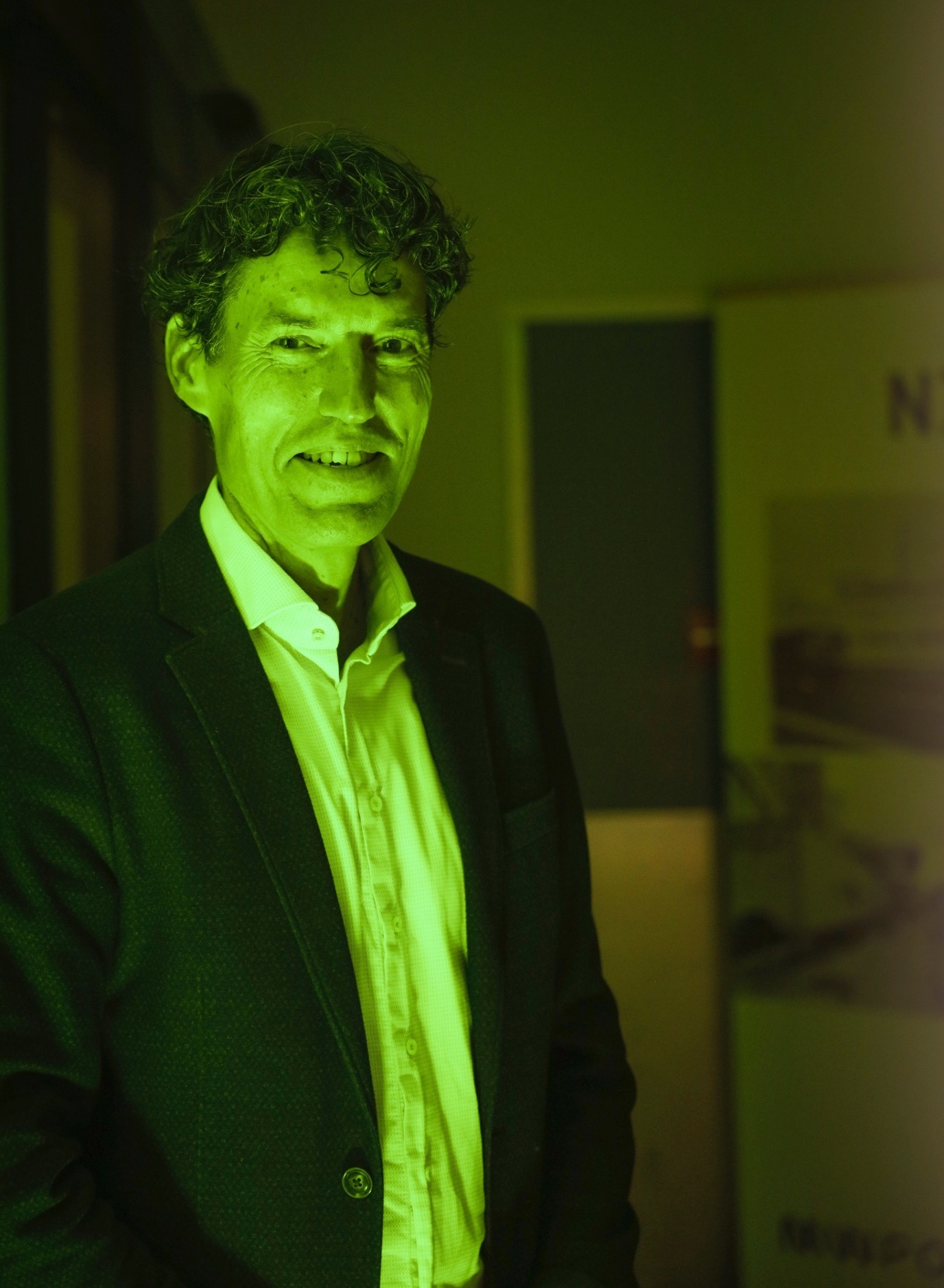
An application with different perspectives
The AI Factory was established in response to the issue of digital independence. Stolk explains how it came onto his radar: ‘The University is completely dependent on companies such as Google and Microsoft. Combined with the current President of the United States, this means that there is a growing pressure on access to university data and on academic freedom. In addition, this dependence means that if Google were to double its prices, we'd simply have to bear the costs. Otherwise, the University would be brought to a halt.’ Upon realizing this, Stolk initiated the Data Autonomy project, which was later based at the UG’s Jantina Tammes School for Digital Society, Technology and AI, and committed himself within SURF to addressing the problem at a national level.
In 2024, the European Union issued a call for the development of so-called AI Factories — data centres equipped with a supercomputer where experts can develop society-focused AI tools. The reason behind it is that the EU does not want to be completely dependent on other countries such as the United States and China.
This call aligned with Stolk’s own work, prompting him to assemble a team to submit a Dutch application. ‘I was more or less at the heart of the Dutch application. We had to make sure the proposal had widespread support and would be funded, since the EU requires the host country to cover part of the costs.’
The UG and the UMCG responded enthusiastically to the proposal to prepare a Groningen-based application. They mainly emphasized the power of the North, as reflected in the University of the North partnership, and expressed their willingness to contribute their knowledge. The AI Factory will strengthen the digital infrastructure in the region and make it more attractive for investments and talent.
Part of the Dutch contribution will be funded by Nij Begun, a programme that aims to repair the damage caused by natural gas extraction in Groningen and northern Drenthe, and to strengthen the region. The remaining funding comes from various ministries. Stolk highlights: ‘When writing the application, we considered both regional and national interests in terms of economics, government, research, and education.’ By combining these different perspectives, the application emphasizes that the AI Factory in Groningen will be a diverse and accessible place.
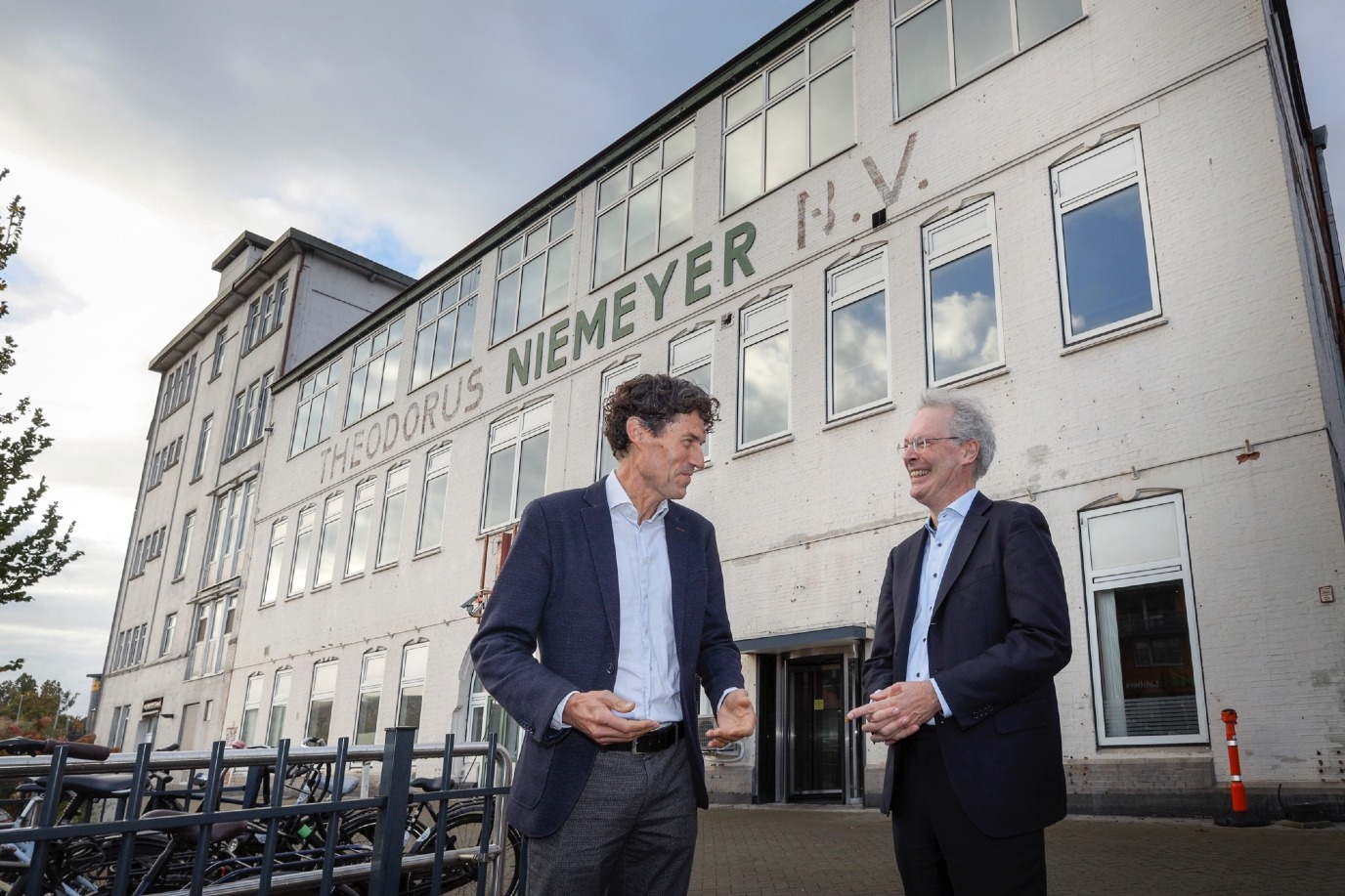
The importance of critical dialogue
Combining different perspectives is fundamental to the development of AI. UG Professor Bart Verheij explains that two levels interact in the development process. On the one hand, it is about what you are looking to achieve with the technology — the human side. On the other hand, it is about the technical implementation, which in today’s artificial intelligence comes down to the immense neural models required to achieve the human goals.
The digital challenge lies in balancing these two levels. People often want to achieve goals that the technology is not yet equipped to handle. The construction of the AI Factory will give a boost to the technology needed for AI-related issues, enabling new goals to be set and achieved. ‘The factory will provide an open environment to work on these challenges.’
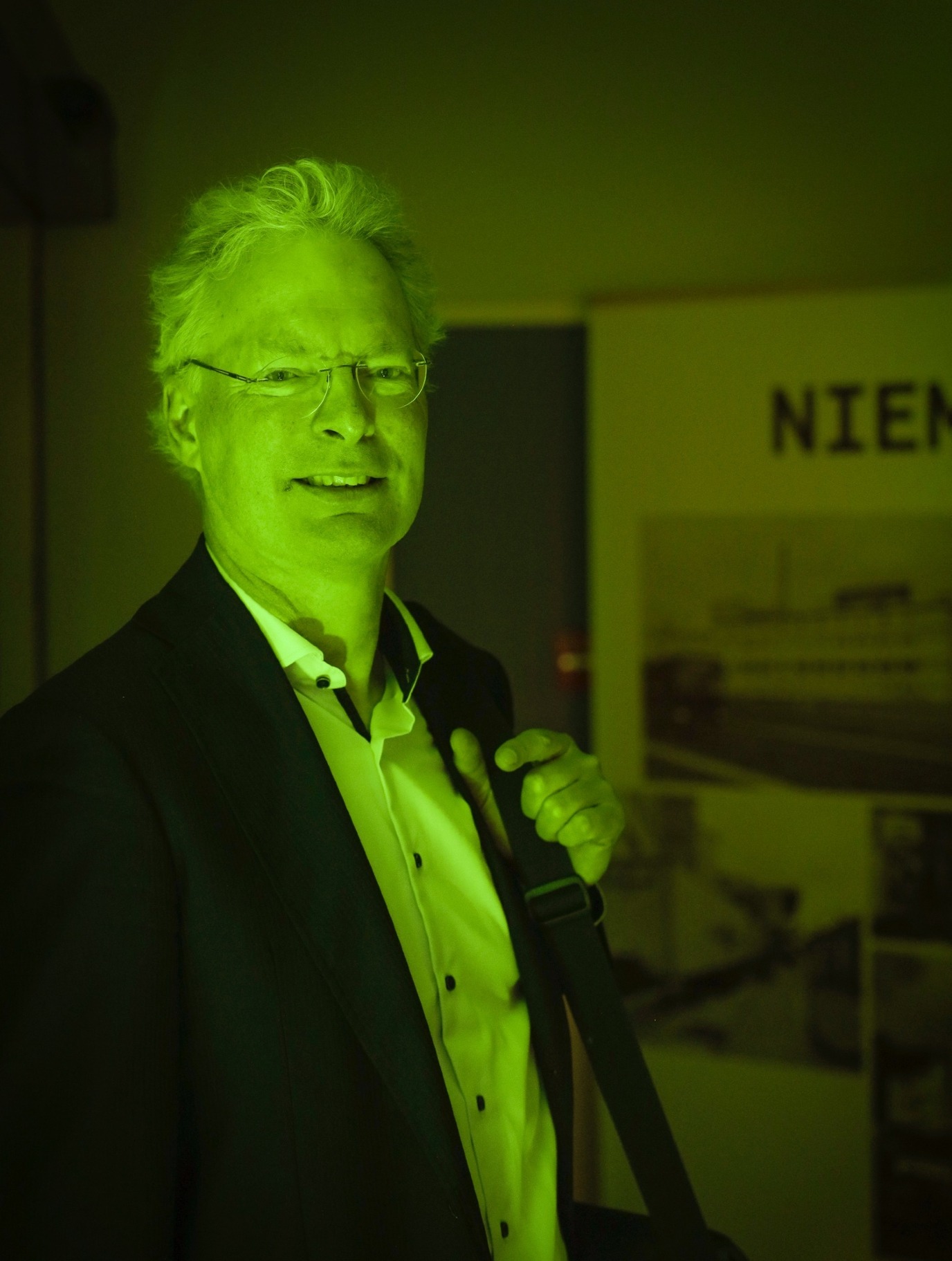
Verheij observes that the importance of language as the link between humans and technology is growing. ‘Everyone is now part of the greatest societal AI experiment in history: what can we achieve with current AI technology? Every time we ask AI a question, we have to wait and see whether what is being generated is useful. After all, there is always the risk of AI hallucinations. It's simply the nature of generative AI. At the same time, we are witnessing the first meaningful interplay between explicitly articulated knowledge and learning from large amounts of data. You could say that the dialogue between humans and machines began with the arrival of ChatGPT, Mistral, and all the other large language models.’
Verheij sees a clear connection between the call for European AI Factories and the current state of affairs. A lot of power politics are at play in the field of AI: ‘The AI Factory in Groningen is doing things the European way. Europe is defined by dialogue. Member states of the European Union are constantly asking themselves: am I really part of the club? And do I actually want to be?’ As a result, Europe pays a lot of attention to dialogue, debate, listening, and course correction. ‘The AI Factory will echo with similar questions: what is AI? What do we want it to be? The factory is a place where we can work together to develop AI technology that benefits society.’
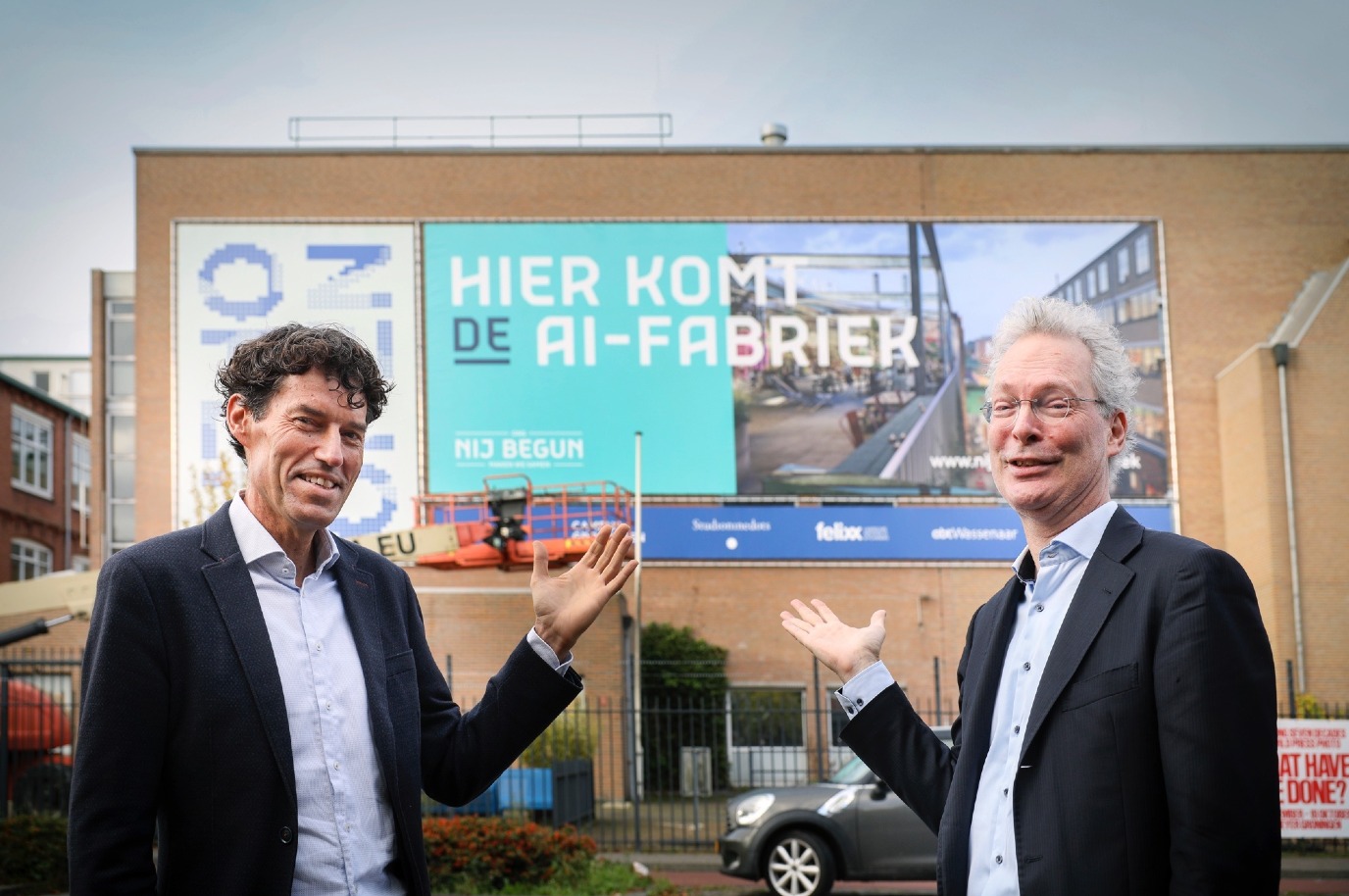
Future-proof computing
The AI Factory in Groningen is not the only facility financed by the EU. There will be no less than 19 factories established throughout Europe, spanning 16 countries. The total capacity of these factories will not exceed that of technologies outside Europe, but that is simply not the objective, says Verheij: ‘Size is not the only important element. It is also about what we build, and how we build it.’ While machines excel at processing data, a human perspective is needed to apply the data in a meaningful way. ‘This means that experts, and entrepreneurs, and others should also be given the opportunity to participate in the development process.’ This dovetails well with the European lifestyle, where consultations are of paramount importance. ‘Humans possess the expertise — we know what is important — while machines have to learn everything from us and our data.’
Verheij believes that future-proof computing is the solution to the digital challenge. This involves a future-oriented shift in our way of thinking and behaviour in relation to technology. He explains the interaction between software and hardware: ‘In the case of neurosymbolic AI, it's important to reflect on how our brains are able to do what they do. Not only do we need to replicate the network structure of our brains, but we also have to ascertain exactly how our cognitive processes work. This will result in new forms of hardware and software design. Our general and technical university has all top-level expertise in-house, along with many students who are eager to contribute.’
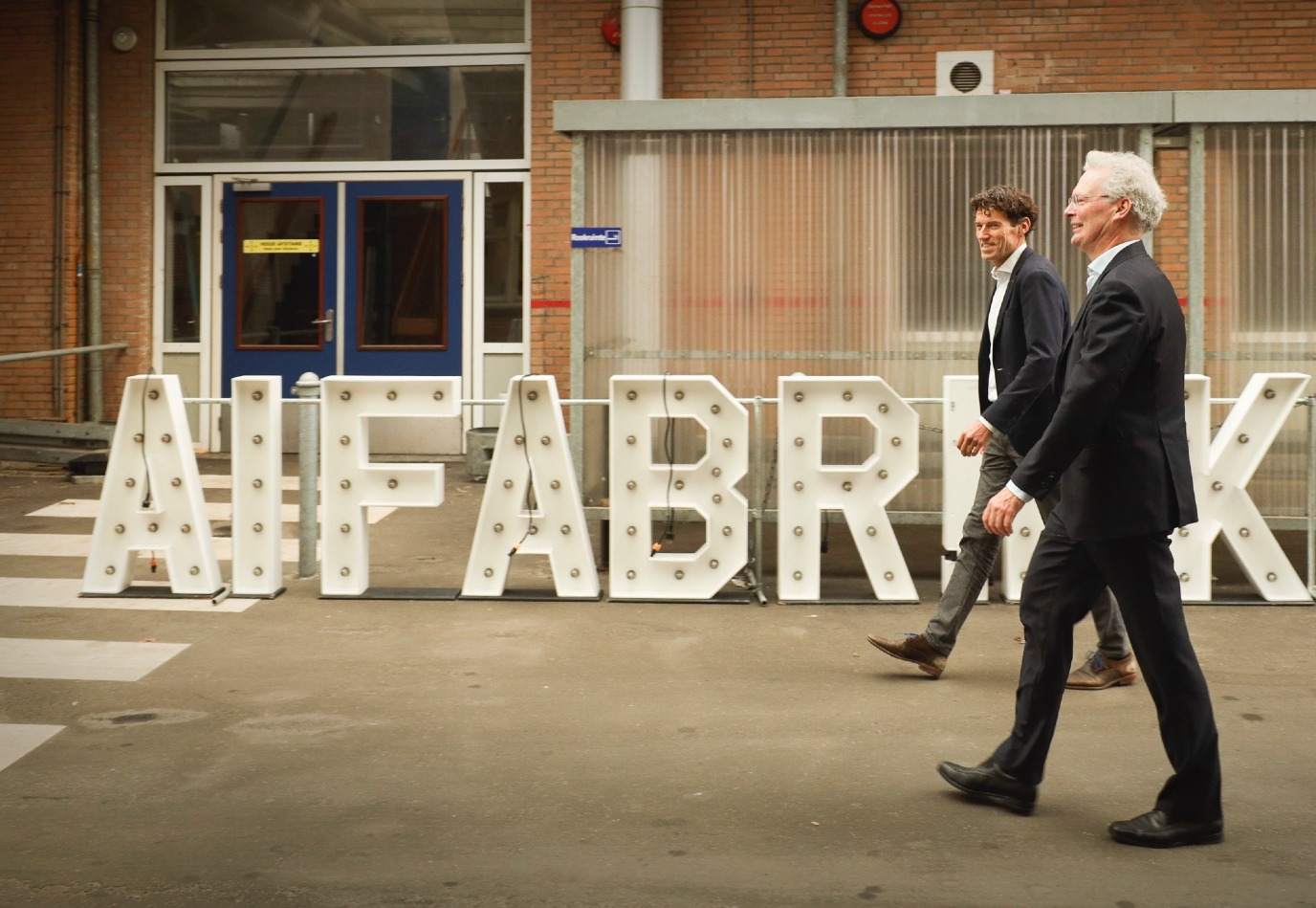
The AI Factory of Groningen
Stolk explains that the AI Factory in Groningen will be built by four consortium partners. SURF will focus on the hardware, given their prior experience with the national supercomputer Snellius. TNO will be responsible for processing data, including a Dutch language model. The AI Coalition 4 NL and Samenwerking Noord will ensure that users get involved and that the tools run smoothly. The expert team will start working in a demand-driven manner at the AI Factory by early 2026. Thanks to the supercomputer — which will be operational by January 2027 at the latest — the partners will be able to view existing data in new ways and make that data manageable, thereby gaining new insights.
The AI Factory supports Nij Begun's efforts to stimulate the regional economy in the long term: ‘The AI Factory will be embedded in an ecosystem that provides hands-on support for AI-related issues.’ This will enable knowledge institutions, businesses, and public authorities to exchange knowledge and explore new ideas. In this way, the AI Factory aligns with the UG's role as fifth-generation university, a concept President of the Board Jouke de Vries discussed at the opening of the academic year. It is a place where experts from various disciplines can work together on current societal challenges.
Now that the AI Factory has been approved, the first stage of the project will begin: mapping the regional and national ecosystem related to AI. There will be training courses, practical support, and coordination on AI-related projects, with a particular focus on digital sovereignty. ‘This completes the cycle: the AI Factory has been established in response to Europe’s concerns about its dependence on America and China. Now that the factory is being set up here, we can take meaningful steps toward strengthening the digital sovereignty of the Northern Netherlands.’
In the article ‘Our core values must be prioritized when making digital choices’, Oskar Gstrein (theme coordinator Data Autonomy at the Jantina Tammes School) explains that the University of Groningen is committed to having full control by 2030 over who has access to our data, which systems are used to process it, and under what conditions this is done. Within the UG, an interdisciplinary group is working on drawing up a roadmap that should lead to a digitally autonomous university by 2030. Gstrein is working with colleagues to decide on the best approach.
More information
More news
-
10 February 2026
Why only a small number of planets are suitable for life
-
09 February 2026
Can we make the earth spin in the opposite direction?
